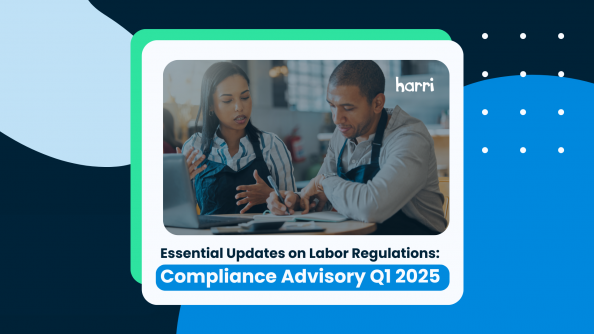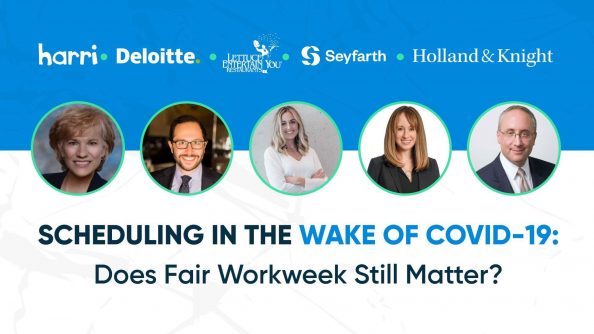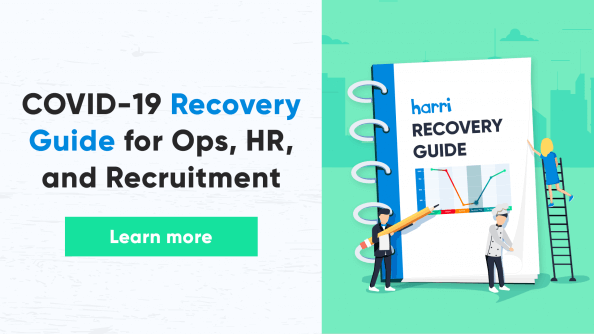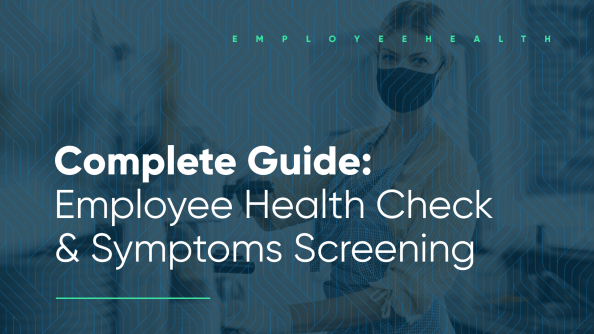Restaurant Bytes: Dar Vasseghi
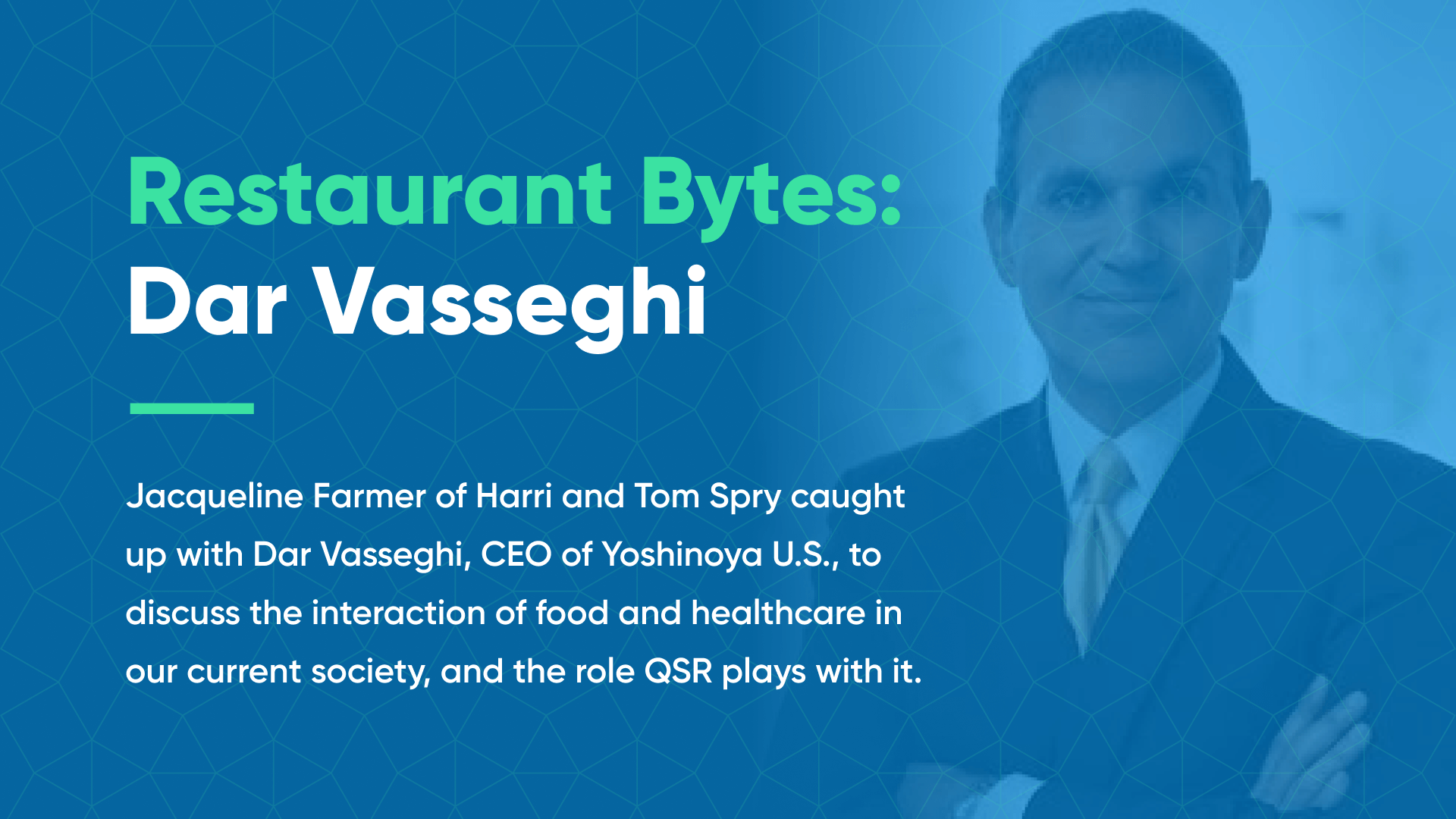
- By Harri Insider Team | October 14, 2020
Welcome back to Restaurant Bytes! This is a short, virtual program that asks restaurant executives questions about the issues they are facing today. Restaurant Bytes is hosted by Tom Spry (Principal of Tom Spry Executive Search) and Harri’s own Jacqueline Farmer (Enterprise Sales Executive). This segment caught up with Dar Vasseghi, CEO of Yoshinoya U.S., to discuss the interaction of food and healthcare in our current society, and the role QSR plays with it.
The relationship between food and healthcare, according to Vasseghi, goes back about 100 years to where food evolved from being local and seasonal to now when nutrition has been compromised for speed and efficiency. With about ⅔ of the population being obese or overweight, we are seeing a resurrgence of seasonal, local food choices.
He believes that while QSR definitely plays a role in this, it is not necessarily a cause and effect relationship. For-profit companies have to grow and make money to survive and pay their people, however, when the public becomes receptive to a different kind of food, QSR brands will be the first to jump on it. Although, this is not always accessible.
Dar Vasseghi is on the board of Everytable, an organization with a strong social mission to transform the food system to make delicious, nutritious food accessible to everyone, everywhere. It’s easy in theory to say “just eat healthier!” but this organization works to bring that option to areas that do not have access and make it affordable.
Vasseghi praises Yoshinoya, a 120 year old Japanese QSR, for its ability to remain a healthy option for customers. Their signature dish (customizable rice bowls) provide customers with healthy options and a way to control what their definition of “healthy eating” is. As a child who struggled with food choices and obesity, Vasseghi decided he would not sell a product he wasn’t going to eat. This sentiment is what guides Yoshinoya’s relationship with their customers and food they serve.
When asked how Yoshinoya has rebounded or survived the pandemic, Vasseghi responded:
“QSR is viewed as more sanitary because it is so systematized and there’s less human interaction”.
QSR brands are able to utilize drive thrus, curbside pick up, and a variety of other channels in order to keep their customers feeling safe. For Yoshinoya, their delivery and drive thru business has gone “through the roof” since the beginning of the pandemic. However, Vasseghi acknowledges that this will still not be the highest sales the brand has ever seen.
For access to the whole interview, click here:







